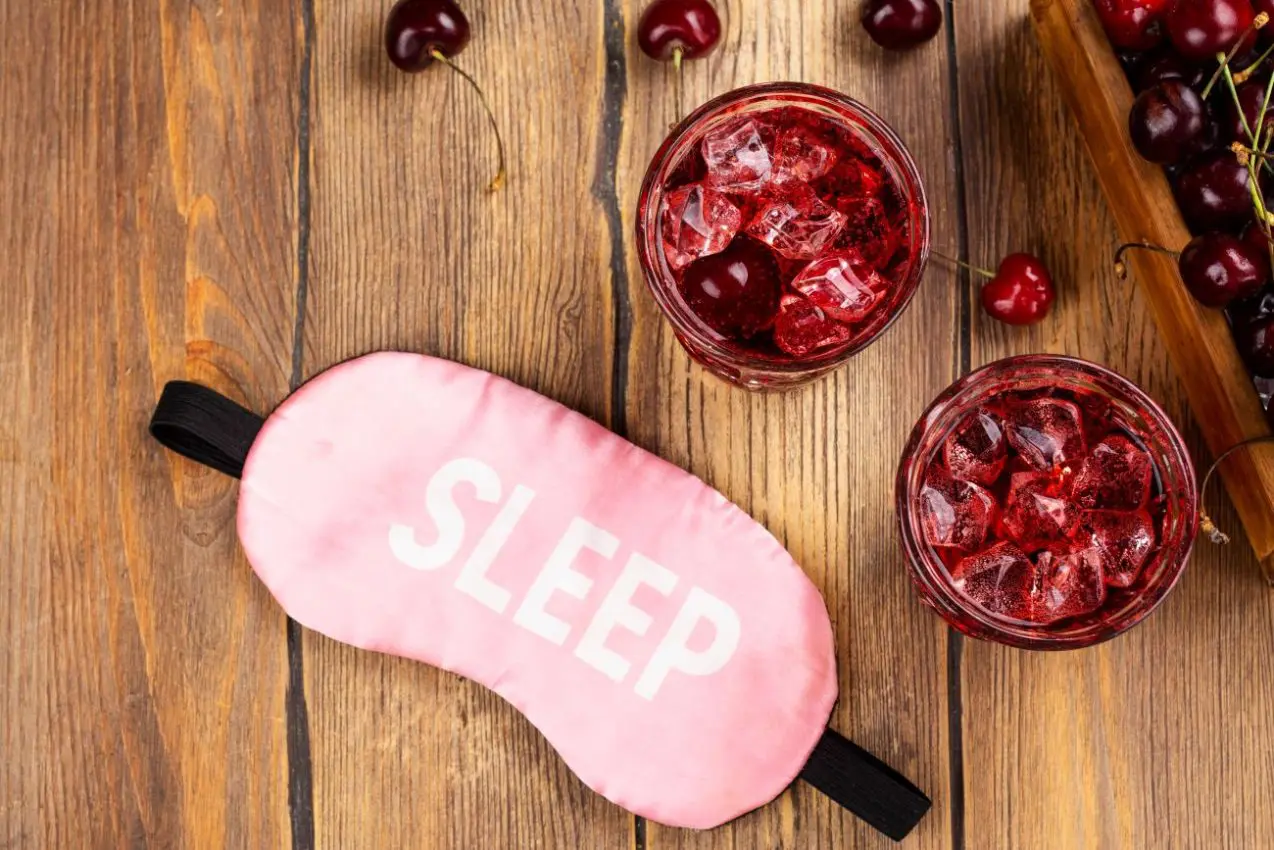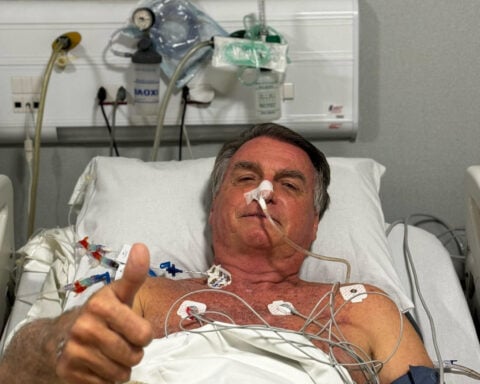In a world where bleary-eyed scrollers desperately seek the perfect night's sleep, a simple homemade concoction has taken social media by storm. The "sleepy girl mocktail," a sweet blend of tart cherry juice and magnesium powder, promises to lull even the most restless minds into a blissful slumber. But can this trendy drink really live up to its lofty claims?
As the siren call of this seemingly miraculous elixir grows louder, experts weigh in on the science behind its ingredients and offer insights on how to effectively incorporate it into a holistic sleep routine. Discover whether the sleepy girl mocktail is merely a fleeting fad or a legitimate aid in the quest for a better night's rest.
"I don't think that it's necessarily going to be like a magic bullet the minute you consume it," cautioned Samantha Cassetty, a registered dietitian based in New York City. "But I do think that the ingredients in it can support healthy sleep."
Using tart cherry juice for sleep has proven to be quite effective as the mocktail contains a trace amount of melatonin from the tart cherry juice, a hormone shown to relieve anxiety, relax muscles, and suppress wakefulness, explained Dr. Raj Dasgupta, a pulmonary and sleep specialist at Huntington Hospital in Pasadena, California. Magnesium assists rest by controlling the stress hormone cortisol levels and boosting melatonin production.
Intrigued by glowing online testimonials, Dasgupta even sampled the drink himself. Yet he observed no discernible improvements to his own sleep. Clearly, this mixture doesn't represent a miracle cure-all. However, credible science does back its ingredients' sleep-promoting effects. So, could deliberately integrating this mocktail into a thoughtfully timed nightly routine truly impact sleep for the better?
Sleep experts overwhelmingly emphasize the importance of consistency in cueing the body for quality rest. "You need to transition into sleep and develop your bedtime routine," said Dasgupta. This means initially going to bed and waking up at precisely the exact times daily to sync with your circadian rhythm, which regulates cycles of sleepiness and alertness. Establishing a predictable evening wind-down schedule signaling to your body that sleep approaches can further ingrain this regularity.
The mocktail could logically substitute for everyday pre-bed treats like a glass of wine or cup of tea as part of such a routine. "Switching to something nonalcoholic and low in sugar but maintaining the ritual of a beverage to signal the start of the winding-down part of the day may be helpful in getting more high-quality sleep," Dasgupta explained. Just beware of excess fluids immediately before lying down, which causes middle-of-the-night bathroom runs.
Correctly timing this drink maximizes any advantages. Dasgupta suggests sipping it exactly two hours prior to attempting sleep, allowing the melatonin to optimally kick in. Also, curb stimulating blue light from screens during this pre-bed window, further enforcing signals of oncoming sleep. Establishing a deliberate nightly schedule incorporating this mocktail could truly bolster sleep quality.
However, clinging to a sole quick fix rather than addressing lifestyle holistically risks oversimplifying the intricate physiology governing rest. "Most people already get plenty of magnesium in their diet" from foods like leafy greens, nuts, and whole grains, Dasgupta said. Habits around physical activity exert far more influence on sleep than any individual food or drink. Even alcohol, despite its initial sedative effects, reduces sleep quality.
Moreover, the occasional poor night's sleep differs significantly from chronic insomnia, warranting medical attention. "If you do have chronic insomnia, you definitely want to make sure that the main state therapy is always going to be cognitive behavioral therapy," said Dasgupta. Discussing concerns with your doctor also remains essential, as underlying conditions could be at play.
The quest for quality sleep proves unique to everybody. While the sleepy girl mocktail might benefit some, it may fail to move the needle for others. Far more important than any single quick fix is a holistic examination of behaviors, health statuses, environments, and routines currently hindering nightly rest. Consider integrating this drink into an individualized wind-down schedule - paired with screens off, baths, stretches, etc. - signaling your body it's time for bed. But also reflect more broadly on lifestyle factors at play, talk to your doctor if chronic issues persist, and accept that perfectly engineered sleep remains elusive.
According to experts, Credible science supports the mocktail's potential to improve sleep. Tart cherry juice contains low levels of the hormone melatonin, which signals time for rest, said Dr. Marie-Pierre St-Onge, associate professor of nutritional medicine at Columbia University. Melatonin suppresses wakefulness, relaxes muscles, and relieves anxiety - all of which prepare both mind and body for quality rest.
Magnesium further assists sleep by controlling the stress hormone cortisol and boosting natural melatonin production, explained registered dietitian Samantha Cassetty. It acts directly on neural pathways involved with triggering sleep.
Prebiotic soda fuels healthy gut flora, though impacts on sleep specifically remain unclear. Regardless, supporting microbiome diversity holds wide-ranging health benefits.
The drink's ingredients may synergistically relax the body for deeper, longer sleep. But how exactly should this mocktail be integrated into nightly routines?
Quality sleep is about holistically supporting healthy rest through strategic behaviors. The mocktail could play a role within wider lifestyle regimens, said experts.
Dr. Raj Dasgupta, a sleep specialist at Huntington Hospital in Pasadena, recommends sipping the drink precisely two hours before bedtime. This allows its melatonin to take effect, cueing natural sleepy feelings optimally. Set alarms on your phone to remind yourself of proper timing.
Simultaneously, avoid stimulating blue light from screens; instead, perhaps take a warm bath or practice gentle yoga stretches. The goal is to send clear signals to your body that sleep will soon arrive. Consider the mocktail the initial warning shot.
Bedtime regularity remains paramount for reinforcing natural circadian rhythms. Initially, turn in at your target time nightly, even if sleep proves elusive. Consider placing the drink on your nightstand as part of this deliberate routine, signaling an imminent transition into slumber.
Over time, your body may associate this mocktail with oncoming sleep, thanks to repeated exposure. But no solitary quick fix can perfectly solve such a complex physiological process. Holistic self-care is vital. While the internet abounds with promises of miracle cures for insomnia, maintain reasonable expectations. Quality sleep resists oversimplification.
This mocktail may benefit some sleep-deprived scrollers. But Dr. Raj Dasgupta sampled it himself without noticing improvements. "Clearly, this mixture doesn't represent a miracle cure-all," he said. Underlying health conditions can profoundly impact rest. Discuss chronic insomnia lasting over three months with your doctor. Cognitive behavioral therapy often proves most effective for retraining neural pathways.
Certain lifestyle factors also have a greater influence on sleep than quick fixes. Regular exercise rhythms, nutrition balancing blood sugar, emotional stress levels, and the presence of stimulating blue light all substantially sway sleep's nuanced physiology.
Holistic self-care better supports healthy rest than a sole magic bullet ever could. While mocktails might help incrementally, examine sleep routines more broadly. Set screens aside before bed, establish exercise routines balancing energy, eat balanced diets, and talk to doctors with concerns. Consistent lifestyle regimens trump isolated elixirs.
The sleepy girl mocktail flooding social media holds scientific potential for marginally improving sleep quality thanks to ingredients like tart cherry juice and magnesium.
Strategically incorporate this drink into evening routines by sipping it two hours before bed, powering down digital temptations, and reinforcing habitual wind-down rhythms. Such lifestyle signals can cue the body for impending sleep.
But beware of oversimplified solutions to such intricate physiology. Address root causes of exhaustion holistically through balanced living, medical consultations if chronic issues persist, and recognition that perfectly optimized sleep remains elusive. Mocktails might incrementally help, but well-rounded self-care proves far more essential for truly restful nights.

 Trump has begun another trade war. Here's a timeline of how we got here
Trump has begun another trade war. Here's a timeline of how we got here
 Canada's leader laments lost friendship with US in town that sheltered stranded Americans after 9/11
Canada's leader laments lost friendship with US in town that sheltered stranded Americans after 9/11
 Chinese EV giant BYD's fourth-quarter profit leaps 73%
Chinese EV giant BYD's fourth-quarter profit leaps 73%
 You're an American in another land? Prepare to talk about the why and how of Trump 2.0
You're an American in another land? Prepare to talk about the why and how of Trump 2.0
 Chalk talk: Star power, top teams and No. 5 seeds headline the women's March Madness Sweet 16
Chalk talk: Star power, top teams and No. 5 seeds headline the women's March Madness Sweet 16
 Purdue returns to Sweet 16 with 76-62 win over McNeese in March Madness
Purdue returns to Sweet 16 with 76-62 win over McNeese in March Madness








